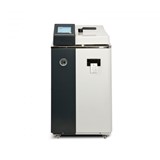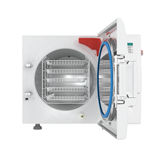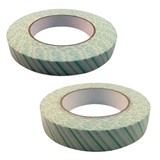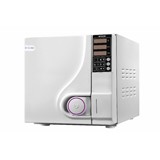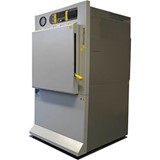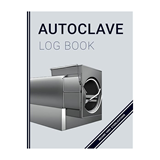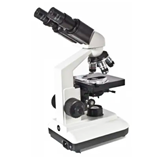Discover the latest veterinary autoclave prices in Australia. Learn about types, maintenance, compliance, and expert tips to choose the perfect sterilisation equipment for your clinic.
Key takeaways
- Veterinary autoclaves in Australia typically cost between $3,500 and $12,000, depending on size, cycle speed, and features such as vacuum drying or touch-screen controls.
- Most popular capacities range from 16L to 60L, with 23L tabletop autoclaves costing approximately $4,000–$6,000, suitable for small- to mid-sized clinics.
- Australian Standard AS/NZS 4187:2014 and TGA registration are mandatory for sterilisation equipment in veterinary use, especially for surgical settings.
- Routine maintenance costs range from $300 to $800 annually, depending on usage and service plans.
- Finance options like rental or lease-to-own are common, with monthly payments from $150–$400, easing cash flow for smaller practices.
- Cycle times vary from 15 to 60 minutes, affecting patient turnover — faster autoclaves may justify higher upfront costs.
Introduction
Sterilisation is non-negotiable in any veterinary clinic. From routine check-ups to emergency surgeries, your autoclave — also known as a steam steriliser — is the backbone of infection control. Choosing the right veterinary autoclave isn’t just about price. You must consider throughput, compliance, servicing, usability, and long-term value. Whether you're upgrading outdated equipment or setting up a new vet clinic in Australia, this guide will walk you through everything you need to make an informed purchase.
Types of veterinary autoclaves
Veterinary autoclaves come in several styles, each suited to different workflows and volumes:
1. Tabletop autoclaves
- Best for: Small to medium veterinary practices
- Capacity: 16L to 60L
- Cycle time: 15–45 minutes
- Average price: $3,500–$7,000
2. Vertical autoclaves
- Best for: Clinics with larger sterilisation loads or hospitals
- Capacity: 60L to 100L+
- Average price: $6,000–$12,000+
- Requires floor space; not ideal for tight consultation rooms
3. Benchtop Class B autoclaves
- Designed to sterilise hollow instruments and porous loads
- Cycle types: Pre-vacuum, drying, and wrapped/unwrapped options
- Complies with Australian standards for surgical tool sterilisation
- Ideal for surgical veterinary practices
4. Pass-through autoclaves (rare in vet settings)
- Installed between sterile and non-sterile areas
- High cost and space requirement
- Common in research or veterinary teaching hospitals
Veterinary autoclave prices in Australia
Veterinary autoclave prices in Australia vary widely based on type, size, and functionality. Here's a breakdown of typical costs and the best use cases for each type:
-
Tabletop autoclaves (standard)
- Designed for general veterinary clinics, these units typically offer 18L to 23L capacity and are priced between $3,500 and $6,000. They’re ideal for basic sterilisation needs and daily practice workflows.
-
Tabletop autoclaves (premium)
- With larger chamber sizes ranging from 29L to 45L, premium tabletop units are built for high-throughput surgical clinics. Expect to pay around $5,500 to $9,000, depending on added features such as rapid cycles and integrated drying.
-
Vertical autoclaves
- Suitable for multi-room clinics or veterinary hospitals, these floor-standing units offer 60L to 100L+ capacity and cost between $6,500 and $12,000 or more. They’re ideal for handling large sterilisation loads across departments.
-
Class B benchtop autoclaves
- Designed for surgical-grade sterilisation of wrapped, hollow, and porous instruments, these compact but powerful units range in capacity from 18L to 29L and cost approximately $4,500 to $8,500. They are highly recommended for clinics performing invasive procedures.
Operation and features to look for
When choosing a veterinary autoclave, key operational features can significantly impact efficiency:
Essential features
- Cycle speed: Fast sterilisation (15–30 mins) improves patient turnaround
- Pre-vacuum drying: Ensures dry, ready-to-use tools
- Touch-screen interface: Easier training and use for staff
- Load sensors and printers: For documentation and compliance
- USB or Ethernet connectivity: Ideal for digital sterilisation records
Optional extras
- Integrated water filtration systems
- Automatic door locking
- Smart diagnostics and self-cleaning functions
Maintenance and consumables
Like all medical equipment, veterinary autoclaves require regular care:
Scheduled maintenance
- Annual calibration: $300–$500
- Replacement of gaskets and filters: Every 6–12 months
- Chamber cleaning: Weekly or after heavy use
Running costs
- Distilled water: $5–$10 per 5L bottle (required daily)
- Printer paper and logs: Approx. $100/year
- Service contracts: $300–$800 annually
Neglecting maintenance can void warranties and cause sterilisation failures.
Spare parts and servicing
Access to spare parts locally is crucial for avoiding downtime:
- Common replaceables: Door seals, valves, filters, heating elements
- Lead times: Top brands offer 24–72 hour local support in Australia
- Servicing tip: Always ask if the supplier offers onsite servicing vs. sending the unit away
Finance and rental options
Veterinary autoclaves can be financed to reduce upfront costs:
Common options:
- Lease-to-own: $150–$400/month over 36–60 months
- Rental: Starting from $200/month (short-term clinics or mobile vets)
- Chattel mortgage: Allows tax benefits and asset ownership
Tip: Vet equipment finance may be eligible for the Australian Government’s temporary full expensing rules (as of 2025), check with your accountant for eligibility.
Warranty and after-sales support
Typical inclusions:
- Warranty period: 1–3 years (extendable to 5 years with some suppliers)
- Coverage: Labour, parts, and sometimes transport
- Support: Australian-based phone/email and sometimes remote diagnostics
Always confirm:
- Is servicing included in warranty?
- What is the turnaround time on urgent repairs?
Compliance and certification in Australia
Autoclaves for veterinary use must meet stringent Australian health and safety standards:
Key compliance factors:
- TGA Registration: The autoclave must be registered with the Therapeutic Goods Administration if used for sterilising instruments for invasive procedures.
- Australian Standard AS/NZS 4187:2014: Compliance required for surgical-grade sterilisation.
- Electrical Safety Certification: Confirm RCM compliance (Regulatory Compliance Mark) for electrical goods.
Installation and setup considerations
Proper installation is essential for safe and efficient autoclave operation. Key points to consider:
- Space and ventilation: Tabletop units need stable surfaces with airflow clearance; vertical models require dedicated floor space and good ventilation.
- Power and water supply: Most run on standard 230V outlets, but larger units may need dedicated circuits. Access to distilled or demineralised water is necessary.
- Professional installation: Certified technicians are recommended to ensure electrical safety, correct plumbing, and proper calibration. This often includes staff training.
- Installation costs: Typically range from $200 to $800, depending on complexity and location.
- Compliance checks: Post-installation validation against standards like AS/NZS 4187:2014 is required, with certification provided for audits and accreditation.
Planning installation carefully helps your clinic maintain strict hygiene standards without disruption.
Common questions veterinary autoclave buyers ask
1. Can I use a human dental autoclave in a veterinary practice?
Yes, provided it meets sterilisation standards for veterinary surgery (e.g., Class B sterilisation with pre-vacuum and drying). However, ensure the unit is registered for veterinary use with the TGA.
2. What size autoclave is right for my clinic?
- Small clinics: 18L–23L tabletop
- Medium clinics with surgery: 29L–45L Class B
- Large facilities or mobile sterilisation: 60L+ vertical autoclaves
Base your choice on how many instrument sets you sterilise daily.
3. How often should I run cycles?
At least daily, with full or partial loads depending on demand. High-volume surgical centres may run 4–6 cycles per day.
4. What’s the difference between Class N and Class B?
- Class N: For unwrapped solid instruments only — limited use
- Class B: Handles wrapped, porous, and hollow instruments — preferred for surgery
Always choose Class B for best practice.
5. Is installation included in the price?
Not always. Installation may cost $200–$500 extra depending on plumbing and location. Always confirm with the supplier.
Final tips for buyers
- Match autoclave type to clinic size and case complexity
- Insist on compliance certificates and TGA registration
- Check local servicing availability before buying
- Plan for long-term costs like consumables and maintenance
- Compare financing terms and total cost of ownership — not just upfront price
Ready to choose your veterinary autoclave?
With the right autoclave, you’ll maintain strict infection control, improve clinic efficiency, and meet Australian compliance standards confidently. Whether you're equipping a new practice or upgrading existing units, take the time to compare features, validate certifications, and factor in ongoing costs — your future self (and your patients) will thank you.




